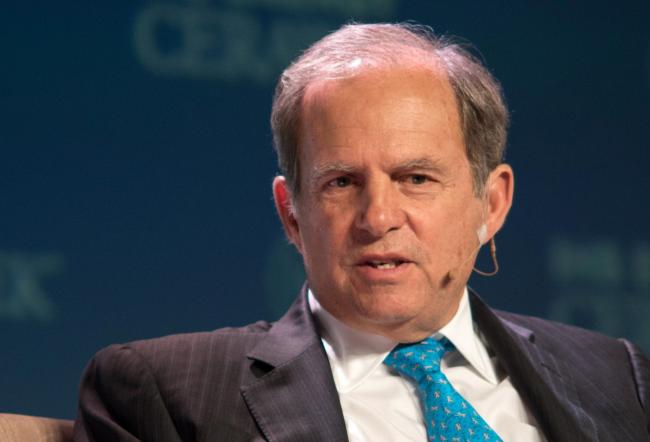(Bloomberg) -- The latest merger between two U.S. shale producers is dealing with an unusual family dynamic that has raised concerns about a potential conflict of interest.
Pioneer Natural Resources (NYSE:PXD) Co. said Tuesday it agreed to buy rival Parsley Energy (NYSE:PE) Inc. for $4.5 billion in stock. Pioneer is run by Scott Sheffield while his son Bryan is Parsley’s founder and chairman.
Pioneer Chief Financial Officer Richard Dealy told analysts and investors on a conference call the two Sheffields were intentionally kept out of takeover talks, which were led by the lead independent directors of both companies.
“Given the related-party nature of it, this was a transaction that was managed independently, so Scott and Bryan were not involved,” Dealy said. “We very much made sure we had a robust process of them not being involved in the negotiations.”
The deal comes amid a growing wave of consolidation in the U.S. shale industry, which is struggling with low energy prices and pressure from investors to realize cost savings and a more stable financial footing. One such combination was confirmed Monday when ConocoPhillips (NYSE:COP) announced its acquisition of Concho Resources (NYSE:CXO) Inc.
The Sheffields’ history as Texan wildcatters spans several generations and multiple cycles of boom and bust. Pioneer’s origins go back to the business run by Scott’s father-in-law, Joe Parsley. Scott, 68, is a veteran oil executive who first took the top job at Pioneer predecessor Parker & Parsley in 1985. Bryan, 42, became a billionaire at the time of Parsley Energy’s 2014 initial public offering, months before the oil price crashed from $100-a-barrel levels.
The Sheffields have more of their wealth tied up in Parsley than they do in Pioneer, data compiled by Bloomberg show. Bryan is Parsley’s 11th-largest holder of Class A shares, with a 2.7% stake valued at about $106 million. He’s also the largest owner of the unlisted Class B stock, holding 21.2 million of those shares. Scott’s stake in Pioneer is worth about $52 million.
The U.S. shale industry has been a lightning rod for accusations of poor corporate governance over the past few years. Executives have raked in millions of dollars in pay, bonuses and stock awards while stock performance languished, and in some cases their companies went bankrupt.
“There are some investors who worry this could be an outrageous conflict of interest and there are others who really believe if the deal’s in everyone’s interest then it’s fine,” said Paul Sankey, a New York-based analyst at Sankey Research.
Parsley executives stand to share $13.8 million in stock payments for a change of control, filings show, with CEO Matt Gallagher -- a former Pioneer employee -- receiving $5.6 million. Gallagher would also be entitled to $7.8 million if he was ousted from the merged entity. Gallagher will join the board of directors for the new company, Pioneer said, while Scott Sheffield will continue as chief executive. Pioneer is still evaluating senior executives from Parsley for including in the new company, it said Tuesday.
Bryan Sheffield, who retired last year as CEO, was removed from the list of Parsley executives entitled to payouts resulting from a merger or acquisition earlier this year. The statement Tuesday announcing the Parsley deal made no mention of Bryan.
(Updates with comment from Pioneer CFO in second paragraph)
©2020 Bloomberg L.P.

